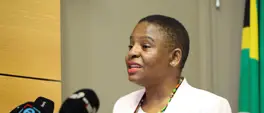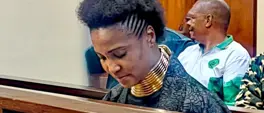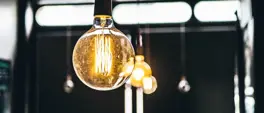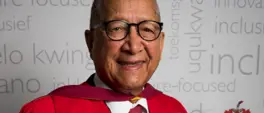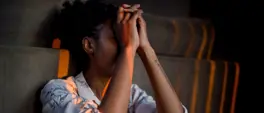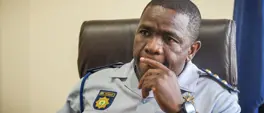SA's 30 years of democracy: Sachs delves into the curation of the Constitution
Kgomotso Modise
23 April 2024 | 17:23After the 1994 elections, the new Parliament took office and the major task of curating the Constitution was foremost for the dawn of democracy.
JOHANNESBURG - South Africa marks 30 years of democracy this week and its lauded Constitution which has been tried and tested remains a symbol of its resilience.
After the 1994 elections, the new Parliament took office and the major task of curating the Constitution was foremost for the dawn of democracy.
Lawmakers had just two years to submit a final draft for certification by the new Constitutional Court.
Getting to this point and undertaking this process was not without literal blood, sweat and tears. South Africa had been through its darkest of times, in the years preceding that moment and the task that lay ahead for Parliament’s constitutional assembly led by Cyril Ramaphosa was nothing short of monumental.
But the African National Congress (ANC) which was the new majority in Parliament was not caught off guard. The liberation movement which had a presence in multiple countries knew that it had to be ready for the imminent negotiations.
The order for anti-apartheid demonstrations to intensify had come from the ANC’s revolutionary leader, Oliver Tambo.
He was in exile in Kabwe, Zambia, in the 1980s and the forces on the ground were running with it. This of course was met with the utmost hostility and violence from apartheid police and the oppressive National Party. But something had to give, and soon enough, it was giving.
Someone who was in Kabwe together with Tambo and others was lawyer and activist, Albie Sachs. He soon formed part of the ANC’s constitutional committee, a group tasked with preparing for negotiations in the formation of a constitution, something that suddenly was in sight.
Sachs is often referred to as the father of the Constitution, but he denies paternity.
“If you really did a real paternity test of the Constitution the DNA that would come up would be Oliver Tambo. In Exile, 1985, gets a group together, Zola Sweyiye, Professor Jack Simons, Kader Asmal, Ted Phakane, Brigette Mabandla, Jobs Jobodwana and Albie Sachs.
“Pallo Jordan was the thinker, he came up with the idea. Because then the big battle became what to do about the whites. They became the centre of the whole constitutional thing. How can you protect the minority interests and we were saying no!”
The committee was initially chaired by academic Jack Simons and included attorney Penuell Maduna.
THE CONSTITUTION CREATED FOR THE WHITES?
The notion that South Africa’s Constitution has a heavy Eurocentric influence is a popular one.
Critics have pointed out how it does little to address the crimes of the past and gives limited ways of redress. Some believe that is because it was influenced by those who perpetrated the crimes and weren't held accountable.
But Sachs disagrees: “The Constitution was made overwhelmingly by African people. Oliver Tambo, Pallo Jordan. It was crafted in Africa in Lusaka. It wasn’t Euro-centered at all. The Europeans were telling us to protect the white minority, they were coming up with all sorts of ideas such as consociationalism. It was the African leaders who said no! One person, one vote, non-racial then non-sexist, that’s what we want.”
Sachs who is now a retired judge but continues to receive recognition throughout the world has reflected on a time that the Constitution was put to the test, during the rule of former statesman Jacob Zuma.
“I had just gotten an honorary degree at the New University in Lisbon, I switch on the TV and there’s news from South Africa. President Jacob Zuma is going to make an announcement. I had known him from when he was my chief representative, in Mozambique, in Maputo, for many many years.
“I admired him very much, he was a good leader, and now he is speaking and he is saying ‘I did nothing wrong, I did nothing wrong, and I am going to resign forthwith’. And I had two totally conflicting emotions. Part Joy, the constitution is working. The Constitution says that the president is answerable to Parliament and if he loses the support of the majority in Parliament he has to step down and he realises that. I am elated. Part, deep sorry, I had known him as a brave, thoughtful person, lovely laughter, beautiful singing voice and it had come to that.
Over the years, some who had sworn to uphold the Constitution have become its biggest critics.
The utterances of former member of Parliament and Minister Lindiwe Sisulu saying “the Constitution is not a holy script” are just one instance in memory. After his contempt of court conviction, Zuma sang the same tune and has vowed to change the supreme law should his MK Party win elections.
Sachs says some of the attacks are understandable from a psychological point of view.
“Some of them acknowledge they did wrong, some of them say that’s history, and some say ‘no it’s not me, it’s the Constitution that’s messing us up or the constitutional court’.
But he says he is proud of South Africa’s supreme law for standing so firm throughout the years.
Get the whole picture 💡
Take a look at the topic timeline for all related articles.
